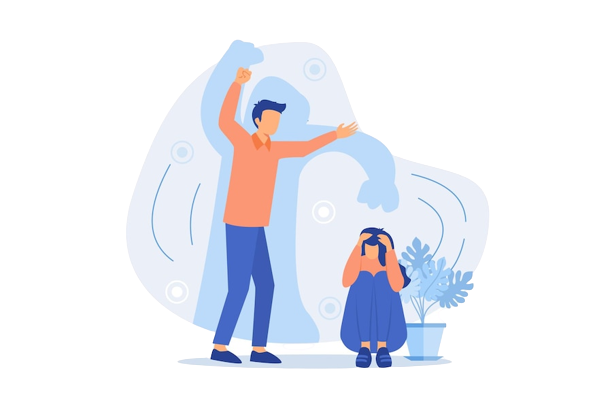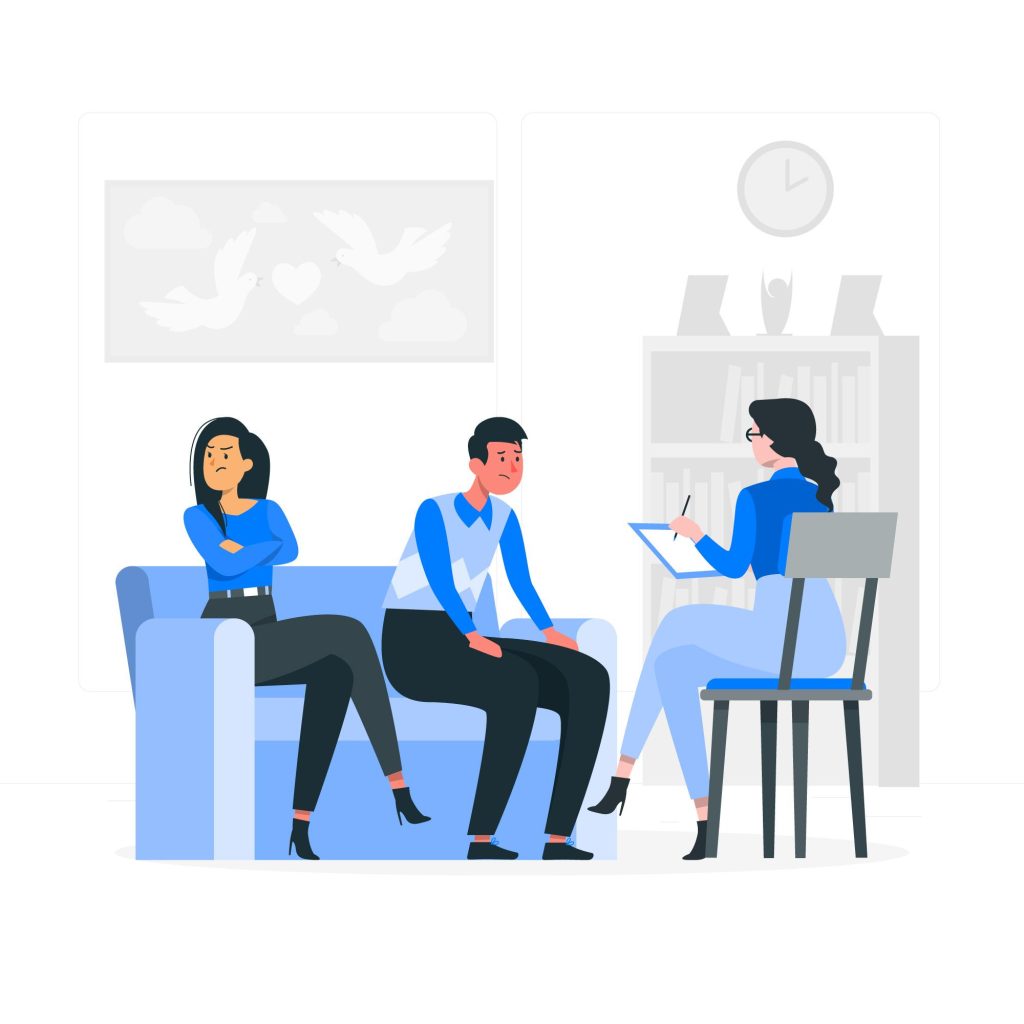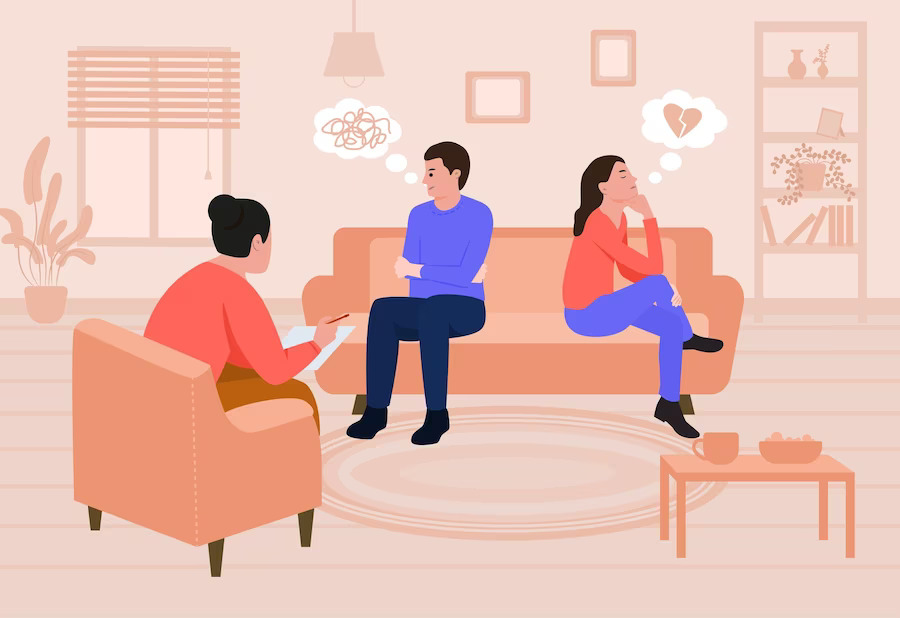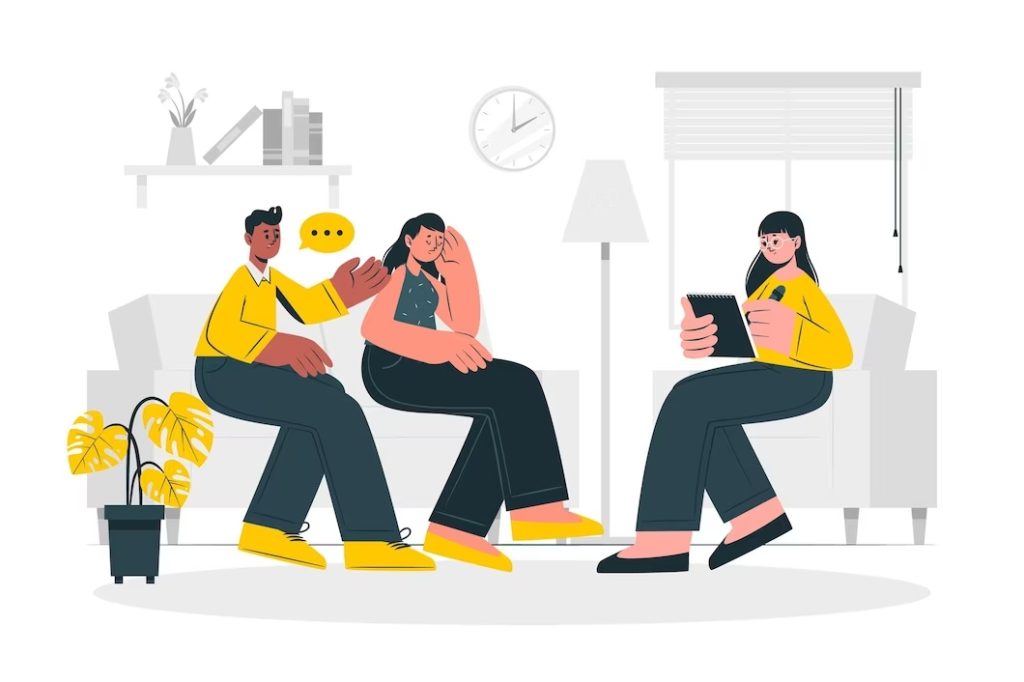Trauma In Relationships: The Hidden Barrier To Love And Connection
Trauma can create a lens through which you view the world as an unsafe, unpredictable, and unwelcoming place. This distorted view can extend to your relationships, making it challenging to find the safety and connection that others seem to find easily. Therefore, trauma can affect your relationships by creating a barrier between you and the opportunity of co-creating a healthy, peaceful, loving, intimate relationship. If you find yourself stuck in this cycle, learning about the effects of trauma in relationships is key towards breaking free and nurturing wholesome, fulfilling, intimate relationships. Signs Of Trauma In Relationships Take a critical look at your relationships, and ask yourself what might be standing between you and the fulfilling connection you seek. It could be difficulties managing emotions, struggles with self-esteem, challenges in creating and sustaining connections, or trouble expressing thoughts and feelings during conflicts with your partner. Here are some ways trauma impacts your relationships: Trauma Can Cause Trust Issues In Relationships: If you are someone who has experienced the pain of betrayal from a previous relationship, you may find it challenging to trust your current partner. You may feel doubtful of their actions, and look out for signs of betrayal, and constantly worry about how they may betray you. Every healthy relationship is built on trust. Therefore, past trauma can often result in trust issues in your relationships. Trauma Can Make You Avoid Emotional Intimacy With Your Partner: If you withhold affection and feel uncomfortable in intimate relationships, it could be a way to protect yourself from the discomfort that emotional intimacy brings. This could show up as ghosting someone you are dating, avoiding deep, emotional conversations, and expressing your true feelings for your partner. Distance takes away the safety and comfort that intimacy brings to a relationship, making it challenging for you to feel fulfilled and content in your relationships. Trauma Can Cause Separation Anxiety In Your Relationships: Experiencing some level of emotional or physical abandonment in childhood, or from a previous relationship, can build a deep-rooted fear of it happening again. This can look like constantly worrying that a partner may leave, and constantly asking for reassurance from your partner. You may feel like your partner is too good for you, and that they will find someone better. You may feel empty, anxious, and hopeless without your partner’s presence. This can make it challenging for you to be yourself in relationships, causing a lot stress and possible conflicts in them. Trauma Can Make It Challenging To Manage Your Emotions: Trauma can make you feel like you are stuck in a rollercoaster of emotions. This can look like having intense mood swings, lashing out at your partner, shutting down or feeling emotionally numb, zoned out during conflicts. These extreme highs and lows can impact the stability and results in a strained relationship. Trauma Can Affect Your Attachment Styles: If you have been in an unhealthy family dynamic during childhood, you may notice a pattern developing in your present relationships. This can look like having a pattern of ending relationships abruptly, or being too close or clingy with your partners, or choosing emotionally unavailable partners. Sometimes, these tendencies may go unnoticed, and you may feel you are simply unlucky in love. But, if you notice them, you may find the answer, and a way to heal your past trauma, work on your attachment styles, and break this cycle of unhealthy relationships. Trauma Can Take A Toll On Your Self-Worth And Self-Esteem: Having a low self-esteem from past trauma could cause you to turn to your partner to seek their constant validation and approval. You may feel like only their opinion matters, forgetting the importance of having your own. You may place your partner on a pedestal, and this can create an imbalance in the power dynamic in your relationship. Also, a low level of self esteem can also make you push away your partner as you believe, deep down, that you don’t deserve them. Trauma Can Make Communicating With Your Partner Difficult: Do you struggle to express what you truly want in your relationships? Do you go ahead with whatever your partner wants, without really looking into what you want? These could be signs of communication challenges in relationships. Struggling with how you express your emotional needs and wants in a relationship could stem from having experienced verbal or emotional trauma or abuse during childhood. A lack of healthy communication can lead to misunderstandings and conflicts in your relationships. Trauma Can Make It Challenging To Think Of A Long-Term Relationship: Your past trauma can make you believe that you are undeserving of happiness and love. Relationships can feel unsafe, making it seem like all the pain of the past will resurface. Therefore, past trauma can make it challenging for you be in long-term relationships, and look into the future. Contact Us Counseling is a process that can help you learn more about yourself and your relationships. Our Counselors are trained to help you with a wide range of concerns. If you are interested in scheduling an appointment with us, please click the link below. Book an Appointment Healing From Trauma In Relationships Through Therapy Trauma doesn’t make you a bad person-regardless of what your actions, thoughts, or even your partner may tell you. When trauma happens, your mind and body quickly get to finding ways to protect you by whatever means possible. But why? Your mind and body does this to protect you from the trauma happening again. Thus, all of the behaviours you label as “bad” are, in fact, ways your body deemed okay as a response to what happened in the past. So, your tendency to shut down during arguments can be seen as a protective mechanism to save you from feeling attacked, hurt, or abandoned as you felt in the past. But, these protective mechanisms can become counterproductive over time. These approaches to protect yourself can hold you back from experiencing true intimacy, which comes from being open, curious, and vulnerable with
Trauma In Relationships: The Hidden Barrier To Love And Connection Read More »




